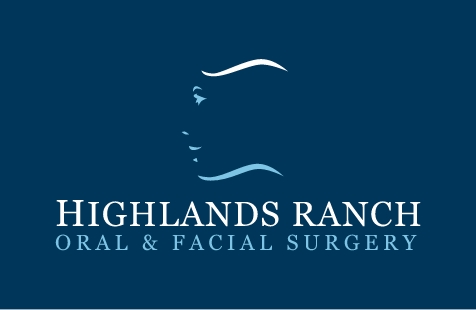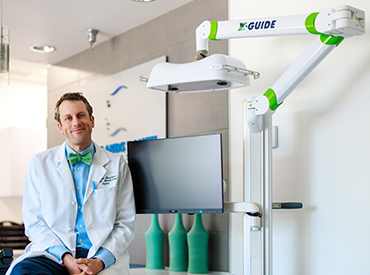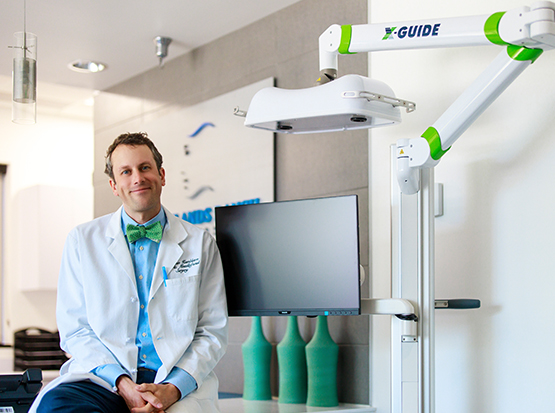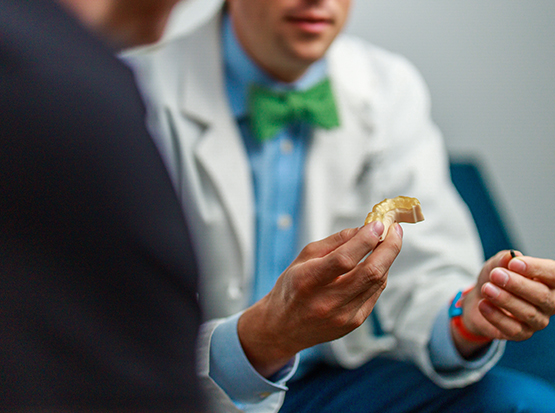 The wisdom teeth, or back molars, typically emerge between the ages of 17 and 21. While some patients never experience any problems with their wisdom teeth, the majority of patients simply do not have enough room in their mouths for these teeth. The best way to handle the wisdom teeth is simply to have them removed.
The wisdom teeth, or back molars, typically emerge between the ages of 17 and 21. While some patients never experience any problems with their wisdom teeth, the majority of patients simply do not have enough room in their mouths for these teeth. The best way to handle the wisdom teeth is simply to have them removed.
Wisdom teeth removal is one of the most common of all oral surgeries, as well as one of the safest. With that said, surgery is surgery, and following your wisdom tooth removal, you can anticipate a period of rest and recovery. For most patients, wisdom tooth recovery takes about a week. However, this can vary quite a bit from one patient to the next.
Before you are discharged from the oral surgeon’s office, you will be provided with a complete set of aftercare instructions, detailing the steps you can take to promote a speedy recovery and to avoid any complications. These guidelines will also provide you with a general sense of what you can expect from your recovery timeline. It is critically important that you follow these guidelines to the letter and contact your oral surgeon if any questions or concerns arise.
Wisdom Tooth Recovery Timeline
As for a general wisdom tooth removal recovery timeline, here is a synopsis of what you can expect.
The First Two Days
Wisdom tooth removal is an outpatient procedure, and it will be performed with either IV sedation or general anesthesia. Once your surgery is complete and you wake up from the anesthesia, you will be cleared to head home. Note that you will need someone to drive you.
As your sedation wears off, it is very normal to experience some pain and discomfort. This can include throbbing pain in the mouth and jaw. For many patients, over-the-counter remedies like ibuprofen are more than sufficient for managing this pain. Prescription pain relievers are also available as needed.
You can expect some minor bleeding around the extraction sites. Biting down on a gauze pad can help keep this bleeding under control. Some mild bruising around the mouth is also normal, and nothing to worry about.
You can also anticipate some swelling, which tends to begin the day after your surgery. This is a very normal response to surgery, and nothing to worry about. The best way to keep swelling under control is by applying ice packs for 20-minute intervals, followed by short breaks. Consistency with ice pack use, particularly on day two, is one of the keys to a smooth recovery.
For the first two days of your recovery, we recommend staying home from work and resting in bed or on the couch. Keep your head elevated by using an extra pillow. Restrict physical activity, especially vigorous exercise, in order to give your body plenty of time to rest and heal.
Finally, make sure you get plenty of nutrients, but avoid hot or spicy foods, as well as anything hard, sticky, or crunchy. Soft foods and liquids are ideal for the first two days but avoid drinking through a straw. The sucking motion can actually loosen blood clots, causing excessive bleeding and setting back your recovery.
Days Three and Four
By the third day, your swelling will probably be at its peak. Keep using those ice packs. Your pain should be mostly or completely gone, leaving you with just a bit of tenderness or general soreness.
Remember the importance of oral hygiene for keeping the extraction site clean. Your surgeon will provide you with detailed instructions about rinsing your mouth with warm salt water. Feel free to brush your teeth as normal but be gentle when brushing near the extraction site. Brushing too hard can cause you to lose collagen, which is crucial for healing your gum tissue.
You may still have some mild bruising by this time, but it should begin to fade. On the third and fourth days, you will still need to steer clear of vigorous exercise. However, you should begin feeling your energy return.
Days Five, Six, and Seven
As you reach the end of the week, your swelling, discoloration, and soreness should be minimal. By this point, most patients are ready to resume all their normal activities, including exercise, and transition all the way back to their normal diet.
You will likely be advised to take a course of antibiotics during your recovery, helping prevent infection. Make sure you finish the full prescription as directed, even if you feel like you are fully recovered or no longer need the antibiotic.
If you develop a fever, bleeding, or other new symptoms, make sure you contact your oral surgeon right away.
How to Speed Up Your Wisdom Teeth Removal Recovery
Different patients recover at varied paces. To expedite your recovery, the best thing you can do is simply be diligent in following the aftercare guidelines provided to you. Some specific guidelines to keep in mind:
- Provide yourself with at least two or three days of rest.
- Use ice packs consistently.
- Keep your head elevated as best you can.
- Stay hydrated, not allowing your mouth to dry out.
- Abstain from alcohol or from tobacco products of any sort.
- After the third day, take some time to massage and stretch the jaw muscles to avoid soreness.
- Take all medications as directed.
- Report anything unusual to your oral surgeon’s office.
Learn More About Recovering from Wisdom Teeth Removal
Having your wisdom teeth removed is nothing to be anxious about. It is a very mundane and safe procedure, and with the right aftercare, recovery is very manageable. To learn more about the process or about the recovery, we welcome you to contact Highlands Ranch Oral & Facial Surgery in Highlands Ranch, CO. Call us at (720) 996-0210.




